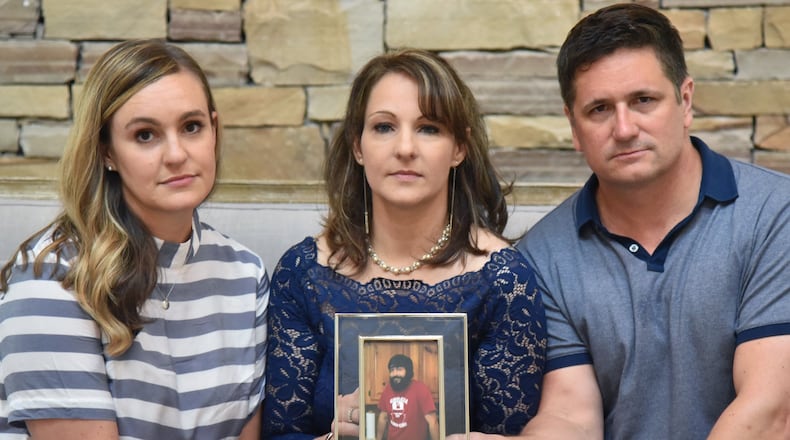The Georgia Supreme Court on Monday reinstated a murder charge against a man who allegedly injected a fatal dose of heroin into another man's arm.
The closely watched case is seen as a test of how far metro-Atlanta prosecutors can go to combat a surge of fatal overdoses caused by opioids, methamphetamine and other narcotics.
Graham Williams stands indicted for felony murder in the overdose death of Gregg Ivey at Ivey’s home in Milton on Oct. 21, 2015. The underlying felony behind the murder charge accused Williams of the distribution of heroin — for injecting the drug.
Fulton County Superior Court Judge John Goger had dismissed the murder charge in a ruling handed down last year. Because Williams injected the fatal dose at Ivey's request and because Ivey purchased the heroin for himself, this could not be distribution under Georgia law, Goger determined.
With no underlying felony charge against Williams, there could no longer be a murder charge against him, the judge said.
But in a unanimous opinion, the state reversed Goger’s decision on procedural grounds. The high court said that Goger’s ruling should have relied solely on facts laid out in the indictment or which the prosecution had conceded to be true.
Neither the indictment alleged nor the prosecution agreed that Williams did not own the heroin in question, played no role in its acquisition or injected Ivey at Ivey’s request, Justice Keith Blackwell wrote. For those reasons, the felony murder charge must be reinstated, the justice said.
In a footnote in the opinion, Blackwell also said the court was not deciding whether Williams could be charged with the distribution of heroin. “Nothing in this opinion should be understood to suggest that the trial court was wrong to conclude that injecting Ivey with Ivey’s own heroin at Ivey’s request would not as a matter of law amount to ‘distributing’ heroin,” the justice wrote.
Fulton County District Attorney Paul Howard praised the outcome of the court’s decision. The opioid epidemic remains in force in Fulton as young people continue to die from overdoses of heroin, fentanyl and other opioid-related drugs, he said.
“This case was important in our efforts to curtail and reduce opioid related deaths through criminal prosecution,” Howard said. “We are pleased to see that the court understood our indictment of the matter, and we hope when the case is finally resolved that it will result in a lessening of our county’s opioid problems.”
Williams’ lawyer, Manny Arora, said he was disappointed with the decision but expressed confidence the felony murder charge will ultimately be dismissed.
“The underlying crux of our argument is correct,” Arora said. “We just need to use another procedural vehicle to get there. They made it clear this wasn’t a judgment on Judge Goger’s decision.”
Arora said he will soon file a new motion to try and get the distribution charge thrown out.
Arora had also asked Goger to dismiss the indictment under the state's 911 amnesty law. Adopted five years ago, the statute encourages drug users to call 911 and stay at the scene of an overdose instead of running away. It grants immunity to those who remain and provide care for the overdose victim.
During a pretrial hearing, Williams testified that he did that and even helped perform CPR on Ivey until EMTs arrived. But one witness at the scene testified that when she initially tried to call 911, Williams wouldn’t let her. Only after a 15-minute wait did Williams allow the call to be made and only if police were told Ivey injected the heroin himself, the witness said.
Credit: Bob Andres
Credit: Bob Andres
Goger, who is now a senior judge, did not rule on the 911 amnesty law motion because he dismissed the felony murder charge on grounds Williams could not be charged with drug distribution.
Ivey, who helped stage concerts, had long struggled with substance abuse and had agreed, at his family’s urging, to enter a rehabilitation facility. Just days before he was to be admitted, however, he went out drinking and told friends he wanted to try heroin for the first time.
According to court records, Ivey asked Williams to inject the heroin into him because he hated needles. The 28-year-old soon collapsed and was pronounced dead later that night at North Fulton Hospital.
About the Author
The Latest
Featured






